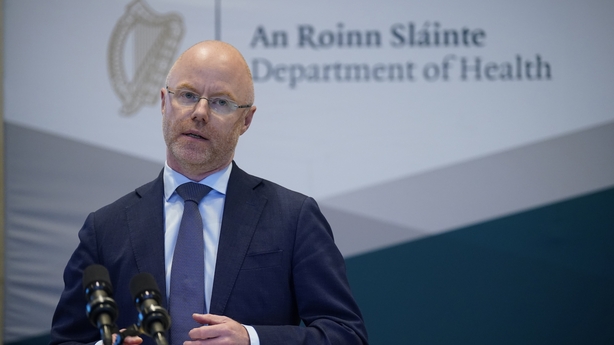Consultant and non-consultant hospital doctor (NCHD) members of the Irish Medical Organisation (IMO) have rejected the new consultant contract proposed by the Government and the Health Service Executive.
The result of a ballot by the trade union shows that 57% of current contract holders have indicated they will not switch to the new contract.
Also 64% of NCHD members say they will not take up the new contract.
The IMO said that 59% of consultants currently working overseas say they will not return to Ireland to take up the contract.
From tomorrow, the only contract of employment that will be offered to new consultants, consultants who wish to transition from existing contracts, or consultants changing employers, will be the new Public Only Consultant Contract (POCC).
It will see consultants rostered on Saturdays for the first time.
It changes the relationship that currently exists between the public and private practice of consultants.
Consultants will not be able to do private work on the public hospital campus but can opt to do private work off-site in their own time.
The basic salary scales for full-time public work range from €214,113 to €257,193 plus other payments for being on-call, a twilight premium, overtime payments for certain agreed overtime work and Sunday and public holiday premia.
Professor Matthew Sadlier, chair of the IMO Consultant Committee, said the Government took the unilateral decision to conclude talks on a new contract and to present a final document on a take it or leave it basis, without agreement.
The key reasons cited for the rejection of the new offer are: no limitation on the number of evenings and Saturdays a consultant will be required to work; the ability of the HSE to change the work location of consultants without agreement and a lack of trust in Government that there will be sufficient medical and other staff on weekend and evening shifts to ensure safety.

Earlier, the Irish Hospital Consultants Association (IHCA) said a survey of its members showed that 73% of its public contract respondents said they were more likely to remain on their current contract, rather than switch to the new one.
There was a 65% response rate to its survey.
The association said time will tell as to the effectiveness or not of the new contract.
"Ultimately, its ability to meaningfully address record patient waiting times, fill the 900 vacant consultant posts, and improve the daily working experiences of all consultants will be the acid tests," the IHCA added.
The association had expressed several concerns about the new contract, including its view that no limits are set on the number of late evenings and Saturdays that a consultant may be rostered to work.
It also had expressed concerns that the provisions for working in private practice off the main public hospital site are "excessively complicated".
Contract 'crucial step' towards universal healthcare - Dept of Health
In its response, the Department of Health said the new contract "is a crucial step on the journey towards universal healthcare".
It said it remained confident that there will be strong uptake of the new contract by new and existing consultants.
The department expressed surprise "by the way in which the IHCA presented the contract to its members at this late stage and said it believed this had a negative impact on sentiment across the consultant body".

Minister for Health Stephen Donnelly said the new contract is a major change in the way public health services will be run.
He said that two of the big alterations are more rostering, moving from about 40 hours a week rostering, to about 80 hours a week.
He said it does not mean that any individual consultant will work longer hours but it will mean more availability of services for patients.
The standard full-time working week under the contract is 37 hours.
Consultants will be scheduled to work within a specified time range between 8am and 10pm on rostered Mondays to Fridays and between 8am and 6pm on rostered Mondays to Saturdays.
Mr Donnelly said that the second big change is that the new contract will help remove private practice from public hospitals.
There had been negotiations in good faith for a long time, the consultants raised issues and he went back to Government several times looking for extra changes, the minister added.






